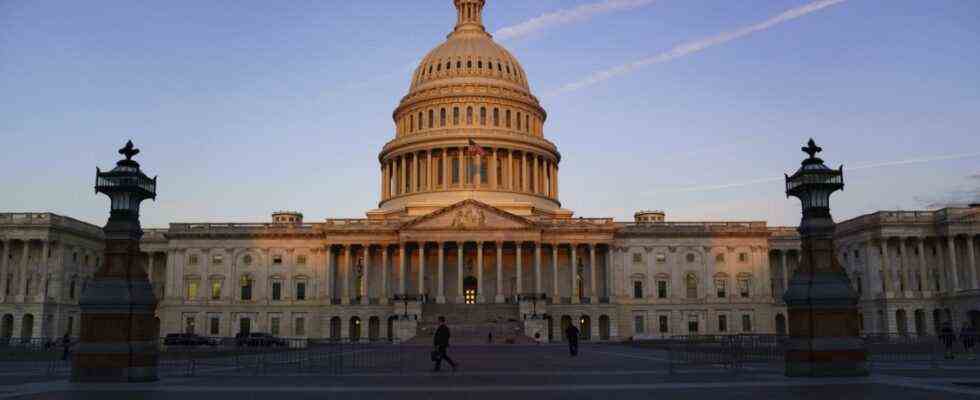The US Congress has averted the forced closure of key federal agencies and the halt in government a few hours before the start of the new fiscal year. After the Senate, the House of Representatives also approved a bridging law on Thursday evening that will ensure the financing of all offices and tasks until December 3rd. Had there been no agreement, the government would have run out of funds by midnight to pay tens of thousands of employees and service providers in key areas. Many authorities would have had to close their doors to citizens as a result of such a “shutdown”. Employees in “essential” areas should have continued to work, but no longer received a salary.
With the passing of the law, which was also approved by at least 15 members of the opposition Republicans in the Senate, the USA spared itself a government crisis, at least for the time being. However, President Joe Biden is not off the hook yet, as his government will reach the legally stipulated national debt limit of 28.4 trillion dollars (around 24 trillion euros) by mid-October. If the limit is not raised or completely removed, the United States will have to declare a kind of national bankruptcy: some of its lenders in the financial markets and in private households no longer receive the promised interest, at the same time the government would have to stop paying many legally promised benefits.
The dispute over a possible “shutdown” and the debt ceiling was overshadowed by the tussle in Congress over Biden’s infrastructure program, with which the President wants to rehabilitate roads, bridges and railways across the country and expand the digital network. In this case, however, the ruling Democrats are solely to blame for the turmoil: Although the entire party supports Biden’s plans totaling a trillion dollars, left-wing MPs threatened to vote no in the vote scheduled for Thursday evening. The reason: the parliamentarians demand from their party friends in the likewise democratically dominated Senate that they also approve the planned social, family and climate program of the president with a volume of 3.5 trillion dollars. Since two Democratic members of the Chamber, Kyrsten Sinema and Joe Manchin, reject the package as too expensive, a deal did not come off initially.
Postponed dispute
The budget dispute has also only been postponed. Unlike in Germany, for example, the Congress does not have to pass one all-encompassing but rather several individual budget laws by September 30 of each year in order to ensure the financing of all government business. If this does not succeed, bridging laws can be passed that fix the expenditures for a few weeks or months at the level of the previous budget year.
Both political parties had used the deadlines in budget legislation several times over the past few decades to put their respective governments under political pressure. At the end of 2018, then President Donald Trump himself brought about the “shutdown” because Congress refused to provide the billions it had asked for to build a border wall with Mexico. However, after more than a month, Trump finally buckled.

